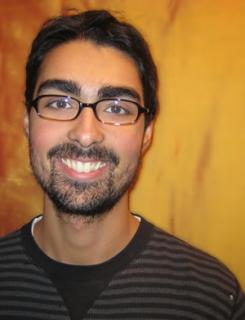Post-Hope
By Elizabeth Nguyen
by Joseph Boyd
In the aftermath of Terence Crutcher’s death, this has been a busy week at All Souls. For many of us, these last couple weeks have felt very heavy, even exhausting.
You may be thinking: I’d love to be more involved, but I’m already overwhelmed with my own ordinary problems. I work a stressful job, I’ve got kids, my relationship with my partner feels shaky. I’m overwhelmed. I can’t even imagine doing anything about racism in Tulsa, let alone America. I’ll leave that to someone who has the time and energy to do that. Maybe somebody younger.
Some of you may also be thinking: I don’t think there is much we can do about racism. I know my history and seems we have passed certain laws and made limited progress in certain areas, but racism is still embedded in all our institutions, embedded into the fabric of our culture. So why waste my time trying to do the impossible? It’s a struggle that I’m destined to lose.
We are in a new era. The hopes that sustained generations past no longer sustain us. There is no longer a general sense that we shall overcome.
I heard a young African American man in this congregation say: “I was told by my father that if I cooperated with police, if I was compliant and held my hands up, that I’d be safe. I no longer believe that. Now I refuse to cooperate with the police, because it will not make a difference. If I’m going to die, I’m going to die on my own terms.”
I spoke with our Coming of Age youth, and I asked them what their thoughts were about Terence Crutcher’s killing. At age 14, many of them said that in regard to racism, they didn’t have any significant hope for change in their lifetime.
I then asked them: “Let’s say there is no significant change in your lifetime — do you still think we are called to do anything about racism?” They unanimously said yes.
Many people, including our youth, do not feel any significant hope for change in their lifetime… yet they feel compelled to act anyway. Why is this, do you think? Why do you think people are compelled to act when they believe their actions may have little or no impact in their lifetime?
It seems we are entering a post-hope era. People are no longer compelled to act because they are hoping for a better future. They are acting because of something else.
This something else is very simple, and it’s contained in our first principle. We are acting in this era simply to affirm our humanity, to affirm our dignity in a world that is constantly trying to distract us from its inherent power.
To me, this is the most hopeful vision, because it’s real. We always have the power to affirm our humanity. We can affirm our humanity even when faced with tragedy and disappointment.
This is a challenging, yet simple, path. It definitely challenges me. It requires that we discover the meeting place of our personal problems and the problems of the world. This meeting place is love.
This kind of love is not a fantasy. It’s not sentimental. It’s not even about being a good person. It’s about being a full person. Our full humanity is tied to the realized full humanity of all people, including those that don’t look like exactly like us.
When we affirm another’s humanity, no matter what the result is, we affirm our own. This is the greatest love of all.
Originally from Oregon, Joseph Boyd first discovered Unitarian Universalism at First Unitarian Church, Portland. He served as an adult mentor with what is now called the Unitarian Universalist Association Thrive Leadership Schools for youth and young adults of color. After graduating from Union Theological Seminary, he now serves as the intern minister at All Souls Unitarian Church Tulsa. His interests as a minister range from contemplative spiritual practices, the integration of psychiatry and religion, theatre and storytelling as means of transformation, and those directly impacted by incarceration. He most recently finished working as a student chaplain at Rikers Island Correctional Facility, exploring the use of horticulture as therapy with inmates and detainees. (He wrote for Blue Boat about this experience, here.) He lives in Tulsa with his beautiful and talented wife Jennifer, and cats Jasper and Simon.

